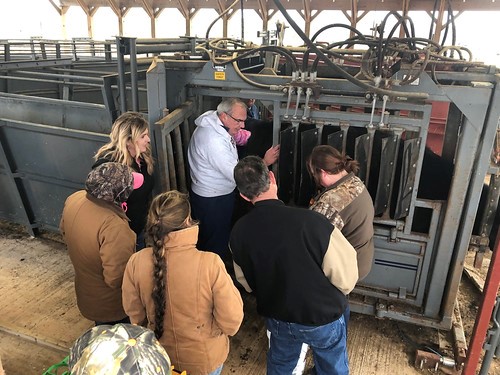Artificial insemination used less often with beef cattle due to perceived higher cost, labor and facility needs.
August 8, 2019

Charles Looney, now professor and extension cattle improvement specialist for the University of Arkansas System Division of Agriculture, is looking to improve the genetics of beef cattle in Arkansas through the use of artificial insemination (AI), according to an announcement from the university.
Looney works at the division’s Southwest Research & Extension Center near Hope, Ark., where two AI programs were held in April and June that focused on the specifics of AI as well as recordkeeping, identifying top bulls, vaccinations and more.
“The AI program is another avenue in which we are trying to educate the masses about cattle management and focus on reproduction,” Looney said. “Reproduction of the cow herd is one of the most important functions of a ranch, and it is not focused as much as it should be.”
Cattle is a top commodity in Arkansas, where cattle/calves racked up $489 million in cash receipts in 2016, according to the U.S. Agriculture Department's Economic Research Service, the announcement said.
Despite having been around for decades, AI is not regularly used in beef cattle due to perceived higher costs and increased labor needs associated with it, Looney said. In addition, AI requires cattle handling facilities such as chutes for injections and insemination. However, many AI companies can provide this equipment in portable facilities if needed.
“AI is an underutilized technology, primarily because of the labor it requires,” Looney said.
Using AI helps with earlier breeding and calving and, in turn, a higher weaning weight for calves, the university said, noting that AI also allows breeders to choose the bull that will be used -- a cheaper and more effective option. This allows breeders to choose bulls with the best genetics.
“Looney’s program helps producers realize how beneficial it is,” University of Arkansas animal science department head Mike Looper said. “When you look at the quality from AI, it generally costs less than natural mating.”
You May Also Like

.png?width=300&auto=webp&quality=80&disable=upscale)

